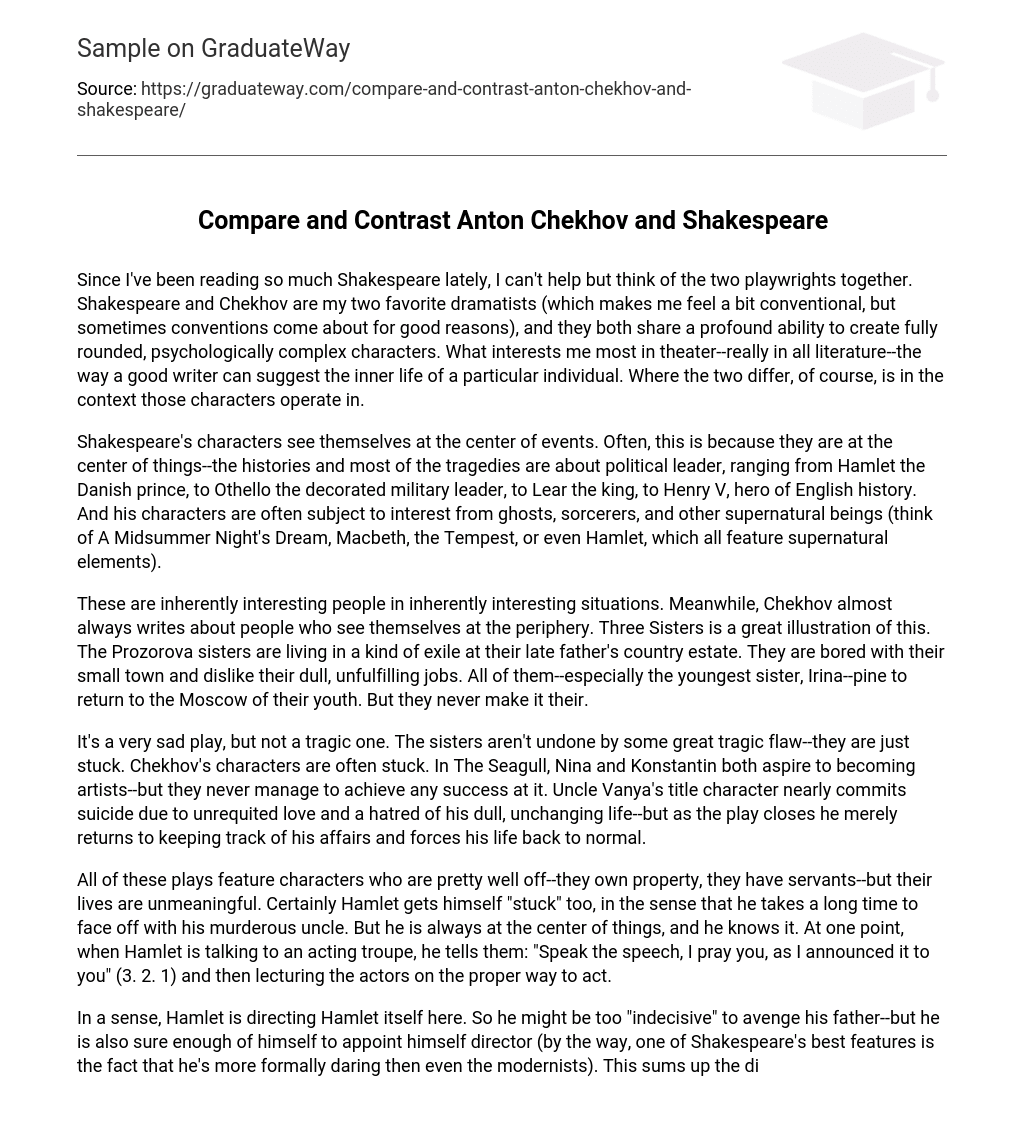Since I’ve been reading so much Shakespeare lately, I can’t help but think of the two playwrights together. Shakespeare and Chekhov are my two favorite dramatists (which makes me feel a bit conventional, but sometimes conventions come about for good reasons), and they both share a profound ability to create fully rounded, psychologically complex characters. What interests me most in theater–really in all literature–the way a good writer can suggest the inner life of a particular individual. Where the two differ, of course, is in the context those characters operate in.
Shakespeare’s characters see themselves at the center of events. Often, this is because they are at the center of things–the histories and most of the tragedies are about political leader, ranging from Hamlet the Danish prince, to Othello the decorated military leader, to Lear the king, to Henry V, hero of English history. And his characters are often subject to interest from ghosts, sorcerers, and other supernatural beings (think of A Midsummer Night’s Dream, Macbeth, the Tempest, or even Hamlet, which all feature supernatural elements).
These are inherently interesting people in inherently interesting situations. Meanwhile, Chekhov almost always writes about people who see themselves at the periphery. Three Sisters is a great illustration of this. The Prozorova sisters are living in a kind of exile at their late father’s country estate. They are bored with their small town and dislike their dull, unfulfilling jobs. All of them–especially the youngest sister, Irina–pine to return to the Moscow of their youth. But they never make it their.
It’s a very sad play, but not a tragic one. The sisters aren’t undone by some great tragic flaw–they are just stuck. Chekhov’s characters are often stuck. In The Seagull, Nina and Konstantin both aspire to becoming artists–but they never manage to achieve any success at it. Uncle Vanya’s title character nearly commits suicide due to unrequited love and a hatred of his dull, unchanging life–but as the play closes he merely returns to keeping track of his affairs and forces his life back to normal.
All of these plays feature characters who are pretty well off–they own property, they have servants–but their lives are unmeaningful. Certainly Hamlet gets himself “stuck” too, in the sense that he takes a long time to face off with his murderous uncle. But he is always at the center of things, and he knows it. At one point, when Hamlet is talking to an acting troupe, he tells them: “Speak the speech, I pray you, as I announced it to you” (3. 2. 1) and then lecturing the actors on the proper way to act.
In a sense, Hamlet is directing Hamlet itself here. So he might be too “indecisive” to avenge his father–but he is also sure enough of himself to appoint himself director (by the way, one of Shakespeare’s best features is the fact that he’s more formally daring then even the modernists). This sums up the difference between Shakespeare and Chekhov quite nicely–even Shakespeare’s most “paralyzed” character is capable of literally taking charge of his own play, while Chekhov’s Prozorova sisters can’t even prod themselves to go on a simple trip to the city.





